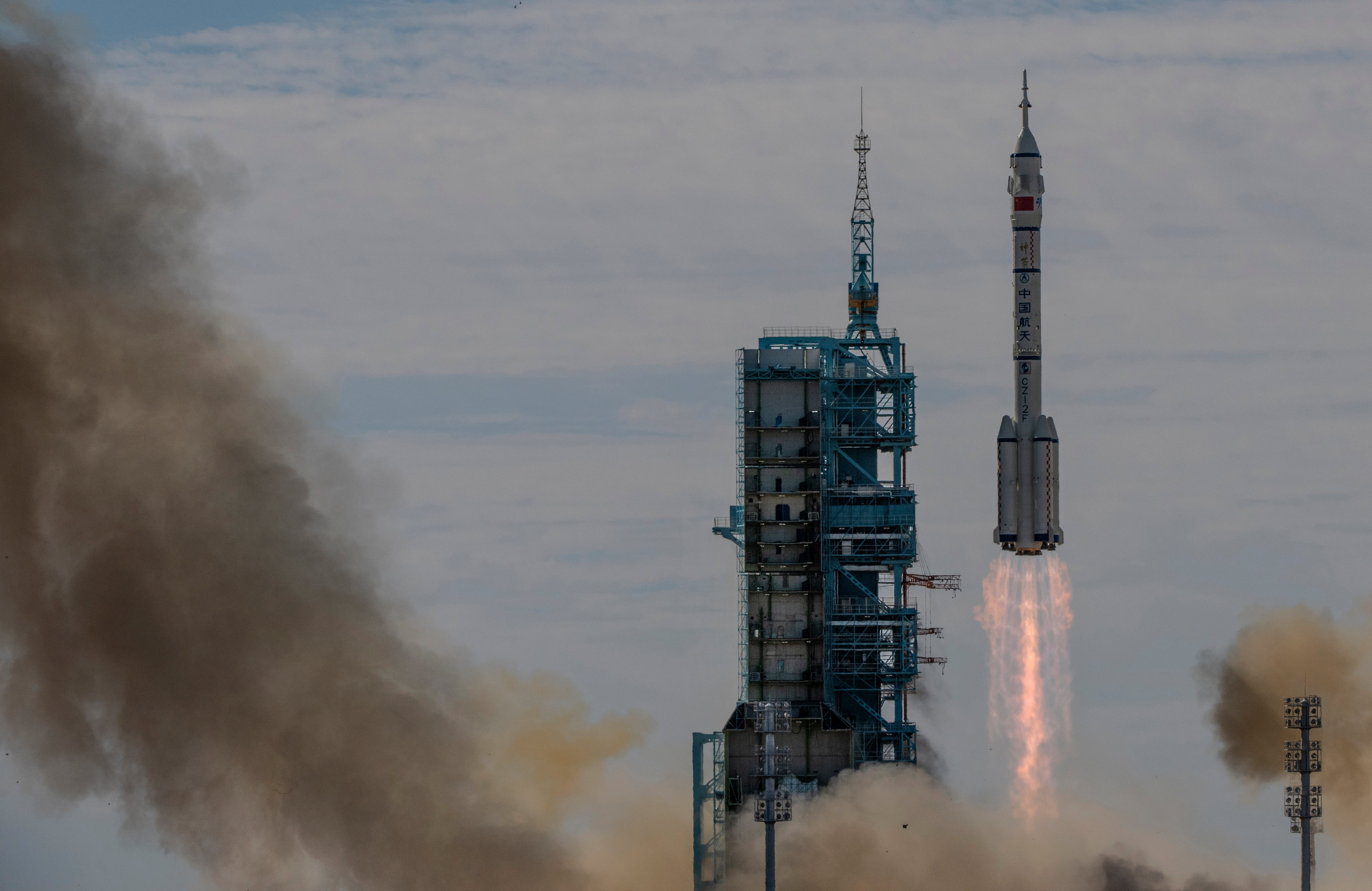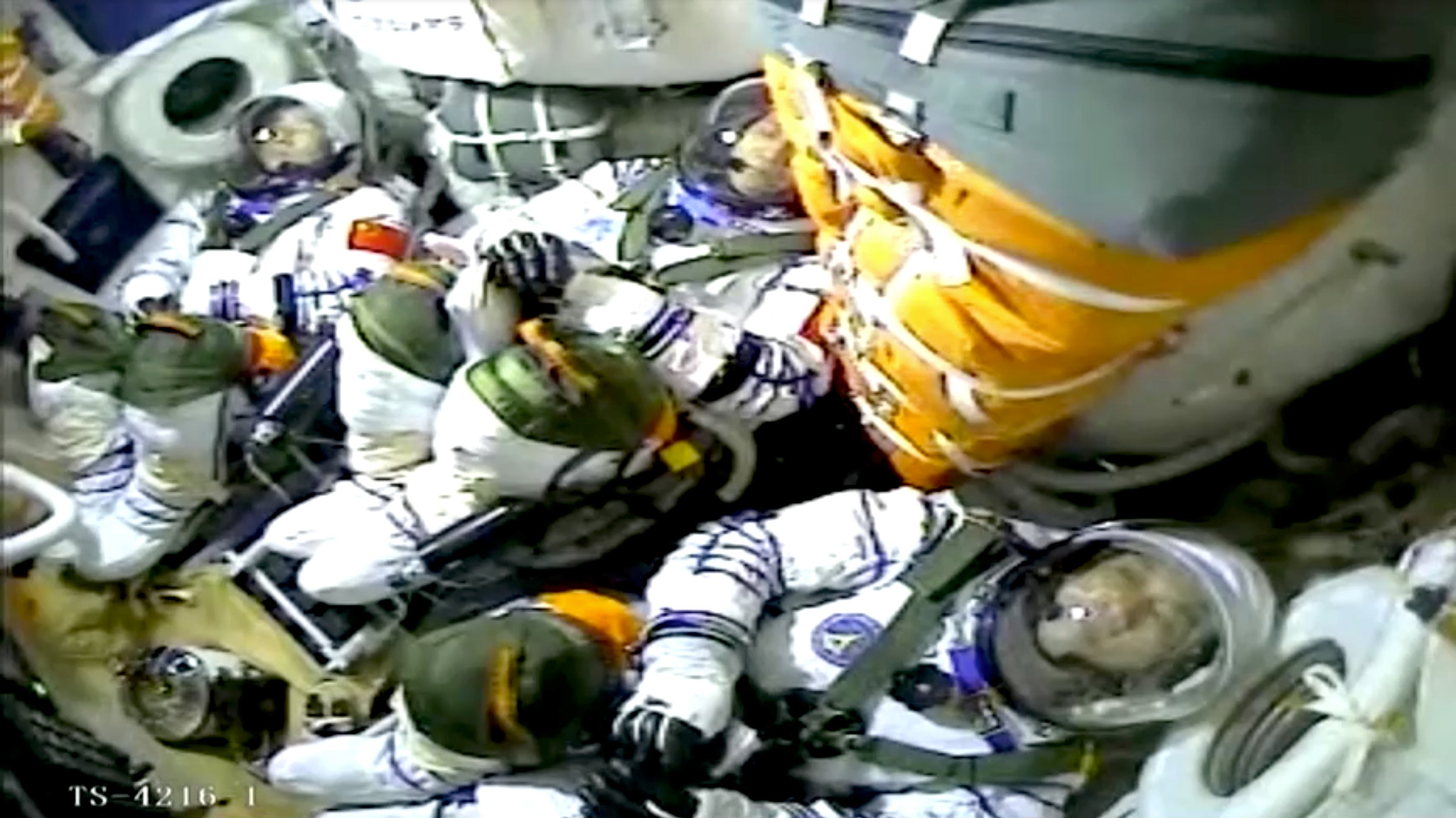China space launch: Chinese astronauts arrive at new ‘Tianhe’ space station in major breakthrough
The astronauts will spend three months at the space station

Your support helps us to tell the story
From reproductive rights to climate change to Big Tech, The Independent is on the ground when the story is developing. Whether it's investigating the financials of Elon Musk's pro-Trump PAC or producing our latest documentary, 'The A Word', which shines a light on the American women fighting for reproductive rights, we know how important it is to parse out the facts from the messaging.
At such a critical moment in US history, we need reporters on the ground. Your donation allows us to keep sending journalists to speak to both sides of the story.
The Independent is trusted by Americans across the entire political spectrum. And unlike many other quality news outlets, we choose not to lock Americans out of our reporting and analysis with paywalls. We believe quality journalism should be available to everyone, paid for by those who can afford it.
Your support makes all the difference.Chinese astronauts have arrived at the country’s new space station in another major step for its plans to explore the solar system.
The three astronauts will spend three months at the space station, after their Shenzhou-12 craft docked with the Tianhe module.
It is another step forward for the country, which has in recent times sent rovers both to Mars and to the dark side of the Moon.
It also a success for the space station module partly known for being launched by a rocket that tumbled out of control and fell back down to Earth, sparking worry and a debate about how the world should deal with its space debris.
The astronauts had been seen off by the commander of China’s manned space programme, other uniformed military personnel and a crowd of children waving flowers and flags and singing patriotic songs.
Tang Hongbo, Liu Boming and Nie Haisheng gave final waves to a crowd of people waving flags as they entered the lift to take them to the spaceship at the Jiuquan launch centre in northwestern China.
The astronauts travelled in the Shenzhou-12 spaceship launched by a Long March-2F Y12 rocket that blasted off soon after the target time of 9.22am.
The two veteran astronauts and a newcomer making his first space flight have docked at the Tianhe, or Heavenly Harmony, station for a three-month stay in its main living compartment, where they will carry out experiments, test equipment, conduct maintenance and prepare the station for receiving two additional modules next year.
The rocket dropped its boosters about two minutes into the flight followed by the coiling surrounding Shenzhou-12 at the top of the rocket. After about 10 minutes it separated from the rocket’s upper section and extended its solar panels.
After the Tianhe was launched in April, the rocket that carried it into space made an uncontrolled reentry to Earth, though China dismissed criticism. Usually, discarded rocket stages re-enter the atmosphere soon after liftoff, normally over water, and do not go into orbit.
The rocket used on Thursday was of a different type and the components that will re-enter were expected to burn up long before they could be a danger, said Ji Qiming, assistant director of the China Manned Space Agency.
The mission brings the number of Chinese astronauts travelling into space since China launched its first crewed mission in 2003 to 14, becoming only the third country after the former Soviet Union and the US to do so on its own.
The mission is the third of 11 planned through next year to add the additional sections to the station and send up crews and supplies. A fresh three-member crew and a cargo ship with supplies will be sent in three months.

China is not a participant in the International Space Station (ISS), largely as a result of US objections to the Chinese programme’s secrecy and close military ties. However, China has been stepping up cooperation with Russia and a host of other countries, and its station may remain in space beyond the ISS, which is reaching the end of its functional life.
The mission builds on experience China gained from earlier operating two experimental space stations. It also landed a probe on Mars last month that carried a rover, the Zhurong, and earlier landed a probe and rover on the moon and brought back the first lunar samples by any country’s space programme since the 1970s.
Additional reporting by Associated Press
Join our commenting forum
Join thought-provoking conversations, follow other Independent readers and see their replies
Comments